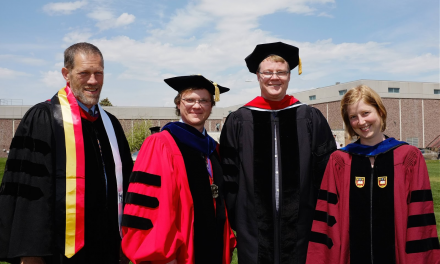This weekend I’m at the Catholic Theological Society of America (CTSA) annual conference in Albuquerque, New Mexico. I spent last weekend at the College Theology Society (CTS) annual meeting at Salve Regina University in Newport, Rhode Island. In between these meetings, the Black Catholic Theologians (BCT) and the Academy of Catholic Hispanic Theologians of the United States (ACHTUS) held a joint meeting in Albuquerque. Add into this mix the Academy of Catholic Theology (ACT) which meets toward the end of May in Washington, DC, and you have a lot of meetings.
Conferences can be energizing and exciting. Going means you not only get to hear good research but also talk about it with smart people. Many people do one, a lot do two, and some end up doing three of four. It is difficult and challenging to do this, but the problem, I think, is more than just exhaustion. I see the current divisions working against three principles of Catholic Social Teaching
First, it is a system that is the hardest on the poorest of those in theology. Graduate students, adjuncts, and contingent faculty often are not supported by their institutions to travel to conferences. Moreover, those working at colleges and universities on a strict budget struggle to get funding to cover one conference completely, much less three or four. As only about 35% of faculty are tenure or tenure track, it means a large portion of theologians struggle to be present at and participate in these conversations.
Second, it is a system that works against the common good of the theological enterprise. If our end is the advancement of theological understanding, this becomes difficult if our societies are isolated from one another. In going to one meeting, we miss going to the others, and so we struggle to be “catholic” in the sense of “wholeness” or “completeness.” This problem is not solved by an absorption of each societies into one large society. This would be the loss of each and so a loss for all, the opposite of the common good. Instead, I mean some way these societies could be in conversation with each other, advancing our understanding of the God who is love.
Finally, it is a system that works against solidarity, both structurally and personally. Structurally, we end up belonging to different societies, and these societies compete for members, dues, and conference attendees. Personally, different groups of people attend different meetings, so we get to know fewer people and make fewer friends. Our relationships become more purely academic and less personal.
Given these structural problems, it doesn’t surprise me that the organizations that lessen the strain of multiple conferences in a short amount of time are ACHTUS and BCT who held a joint meeting right before and in the same city as CTSA. For those that attended these meetings, it meant one trip. Something like this seems to be the right approach. It enables more people to participate in more meetings, preserves the distinctiveness of the societies so that they can contribute to the overall good of theology, and brings societies closer together to talk with each other. I’m not sure how to bring this about for all of these groups, but it seems like ACHTUS and BCT are a good example of how to start.





This is a great issue to raise. Thanks, Jason! This is a very wide-spread problem. I have also heard many times that the expense of allowing conference papers’ authors to attend electronically and to deliver papers via skype is prohibitive for our societies.
Yet when societies collaborate, as Jason describes here, to facilitate more participants and attendees, everyone benefits. More: theology benefits. If theological societies have any responsibility for safeguarding theology as a discipline, then this collaboration is quite important.
I’d like to raise a related issue: the effects on theological societies of colleges closing.
Context: Small liberal arts colleges (SLACs) and non-university affiliated seminaries are in deep fiscal trouble everywhere. In a real way this has already begun to impact who gets to be a theologian. If one’s institution closes, that person must stop working as a theologian. That’s one fewer theologian in the societies. This of course will not be the fault of the societies. I’m not talking about responsibility for causing this. But the societies will have to respond to this consequence of colleges’ financial issues.
When a theologian’s institution cuts budget to save money, several things could happen:
1) S/he might begin paying dues annually to fewer societies.
2) S/he might attend fewer conferences because travel funding is shrinking.
3) S/he might find the college library canceling journal subscriptions, such as ATLA.
4) S/he might find it harder to stay current in the Hot Topics of the day, and……
5) ….harder to remain active in the less formal social circles that meet at conferences and that shape and inform everyone’s research hunches, directions, and strategies.
As the professional societies find themselves with fewer and fewer active SLAC-employed members, they will shrink and will be populated increasingly with R-1 (and similar) situated scholars. This means a(n even) more homogenous membership.
I predict in the coming months and years a significant decrease in the number of theologians who are teaching primarily undergraduates. These scholars have a broad reach than others in many ways. For example at my SLAC I am teaching moral theology to students of every single major, whether they came to college interested in the topic or not. Believe me when I say that every single one of them finds the topic interesting & important at least once before they finish my classes.
I predict also a loss of scholars who teach at small seminaries. I hope that some among them will speak to this issue in this forum, to raise awareness of what will happen to theology if/when their numbers diminish significantly.
I want to ask theologians whose research and institutional support suffice for them to remain active in multiple societies to think creatively about solidarity with scholars at fiscally unsafe colleges and seminaries. I want to ask all of us to consider: What might this sort of solidarity look like?
I am concerned about the future of theology. Here is my question.
Are the professional theology societies (the SCE, AAR, CTS, CTSA for example) thinking about this future? Are there strategies under consideration for the future I describe here?